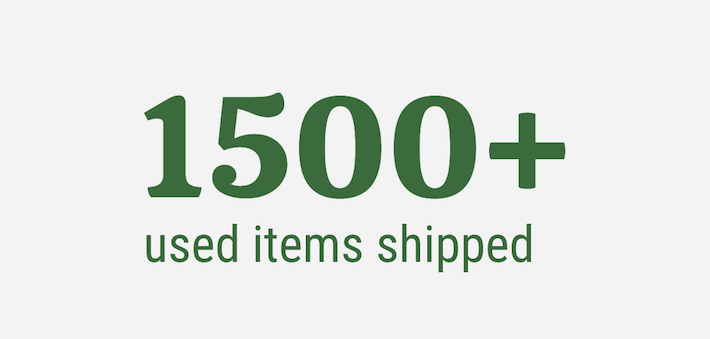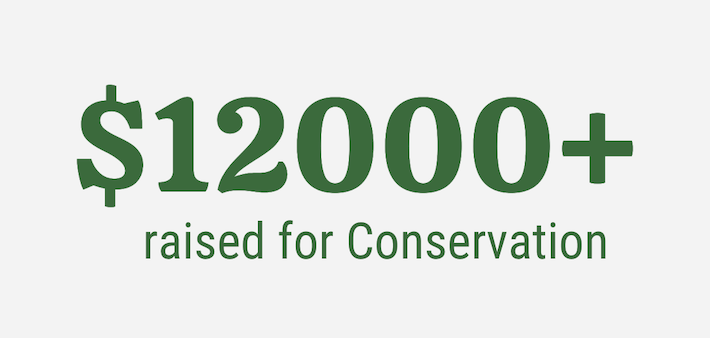
For many of us, the ability to escape into the mountains during the cold winter months is critical for our mental and physical health. Our mountain experiences not only provide a temporary escape from the unhealthy valley air, but they also rejuvenate us, helping us come out of the mountains a little kinder, a little healthier, and ready to make a positive impact in the community.
But with a burgeoning population and a surge in popularity for many winter sports, many of our canyons and mountains are straining under the pressure of human interaction, with fragile ecosystems being threatened by excessive noise, pollution, trash, and development. To see the impact, look no further than Big or Little Cottonwood Canyons in Salt Lake on a Saturday morning, with bumper to bumper idling cars snaking up miles of canyon roads to crowded resorts.
Is it possible to minimize our impact, while still creating an inclusive outdoor environment that encourages everyone to participate? With our booming population and limited wilderness areas, there may be no easy answer to this question, but there are definitely little steps each of us can take to minimize our impact.
Change How You Get There

Our mountains are a fragile ecosystem, and every additional car that drives into them on a busy weekend means more infrastructure required in the form of road maintenance, larger parking lots, trail facilities, and utilities. Not to mention the localized air pollution that come with the large number of single-occupant vehicles idling up the canyons.
If you’re a solo adventurer, carpooling is an easy solution — there has never been an easier time to find like-minded enthusiasts with similar weekend plans, using local facebook outdoors groups and other communities to connect and organize. During the winter, all major canyons in the area are also serviced by UTA busses, which can shuttle you up from park-and-ride lots in the valley to your canyon destination.
Buses and carpooling are not always the most practical or convenient options, but many alternatives are currently being proposed. Whether you favor tolls and parking fees to discourage single occupant traffic, or alternate transit methods like trams or expanded bus access to make shared transit more enticing, make your voice heard. There are no silver bullets to managing transportation while still maintaining mountain access, but any action at this point is an improvement over the current congestion.
Change What You Bring

The equipment you purchase to get outside, whether it be new skis in the winter or a kayak in the summer, has an impact on the environment even if that impact is not directly felt in the Wasatch. Look for suppliers who use sustainable practices, and save up to purchase higher quality gear that won’t break or end up in the landfill after a season of two. Studies suggest keeping clothing and outdoor gear in play for just two extra years rather than buying new now can reduce the carbon, waste and water footprints of your gear by 82%. Learn to view your old worn gear as a badge of honor, not as an excuse to upgrade this season.
For equipment in good condition but collecting dust in your garage, consider loaning to a friend, storing it at Pando Refitters for others to use, or bringing it in to sell on consignment so others have easier access to quality used gear.
When your gear has reached the end of its useful life, there are better places for it than the local landfill. Pando Refitters can put previous season gear to good use as a source for parts to use in our community repair center. If your gear can’t be salvaged, we’ll still take it as-is and drop it off at Recycle Utah for you, a Park City non-profit that specializes in recycling skis and other obscure items.
Change What You Leave Behind

Going completely zero waste may be a challenging prospect, but one simple baseline goal we can all commit to is packing out anything we pack into our canyons and mountains. This includes the obvious culprits like water bottles and food wrappers, but also organics like banana and orange peels, which take multiple years to biodegrade in our arid environment, and simply don’t belong.
While you’re at it, consider being a superstar citizen and bringing an extra bag to pick up trash others may have left on the trail. If you have young kids who struggle with hiking, turning your trip into a trash “treasure hunt” can be a surprisingly effective way to distract them into going longer distances.
Change What You Do

Not all winter sports are created equal, and what we choose to do in the mountains has a tremendous impact on the local vegetation and wildlife. Consider low-impact human-powered sports such as hiking and cross-country skiing. Motorized backcountry vehicles don’t have the same emissions controls as road vehicles, and introduce astounding levels of localized pollution — one 2008 study measured emissions from an hour of snowmobiling as roughly equivalent to driving driving 54,000 miles on the road. Not to mention noise pollution that can disturb local wildlife (and annoy your fellow humans).
Resorts are more of a mixed bag. They require infrastructure, traffic, and pollution that can impact local ecosystems, but they also help concentrate winter activities into relatively small controlled areas, leaving large out-of-bounds areas untouched. Plus they have the buying power to fund larger sustainability projects, like Snowbird’s watershed restoration project and Alta’s tree planting and invasive species management programs.
Investigate the sustainability initiatives of your local resorts, and patronize those whose efforts align best with your values. And if you see something you don’t like, speak up and let your voice be heard.
Get Involved
Finally, protecting our Wasatch winters doesn’t happen by default. It requires coordinated effort by concerned citizens looking to make their voices heard and make a difference. We all want pristine healthy mountain experiences, but we may have different visions for how to make that happen. Find a local nonprofit that aligns with your values, and show your support either as a volunteer or as a donor. A few of our favorite include:
-
Save Our Canyons, which advocates at the hyper-local level for initiatives that preserve the central Wasatch mountains.
-
Utah Open Lands, which aims to secure conservation easements and permanently preserve some of our most cherished local landscapes.
-
Utah Wilderness Coalition, which works to limit high-impact uses on public lands.




